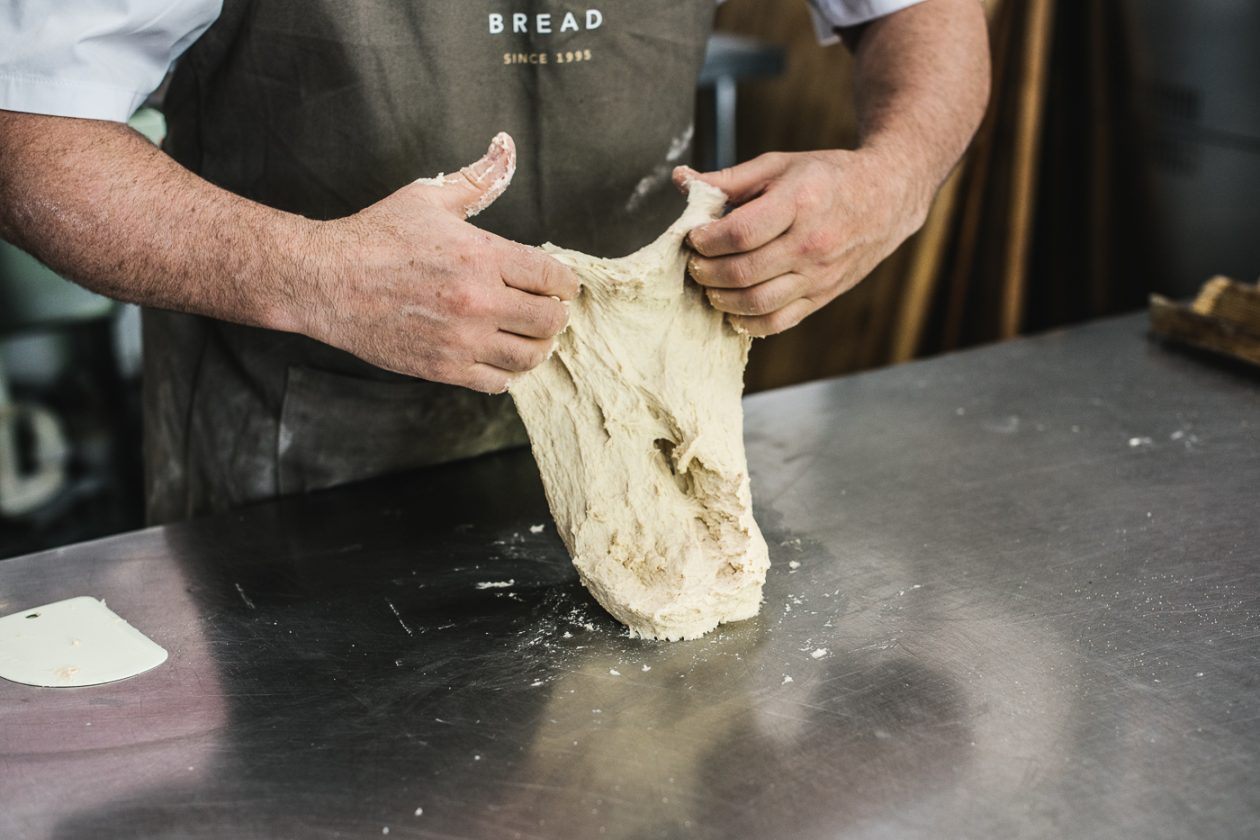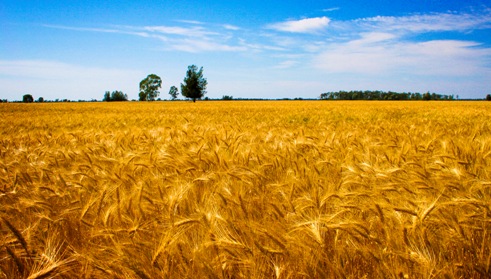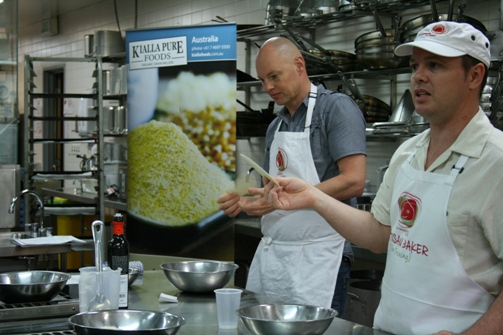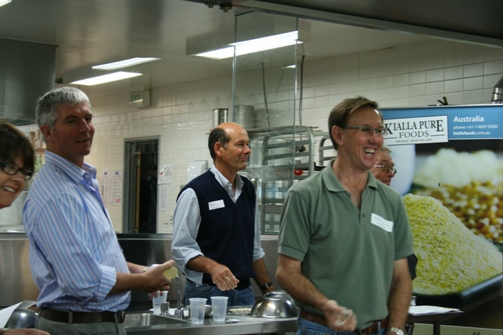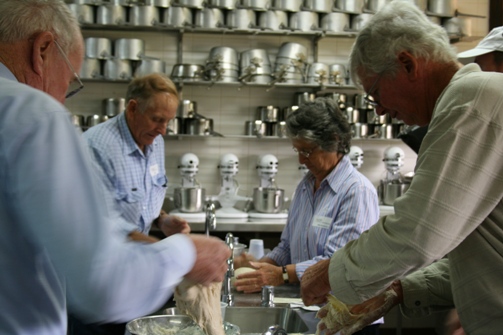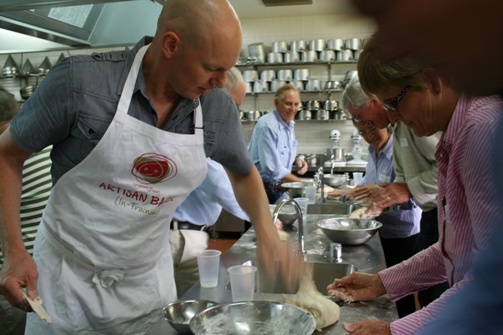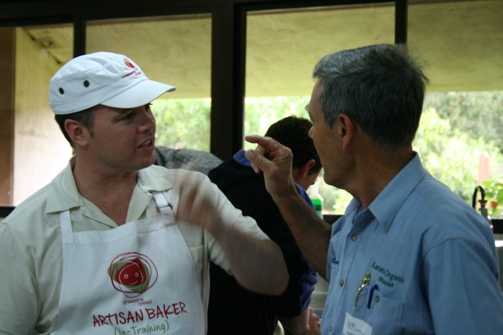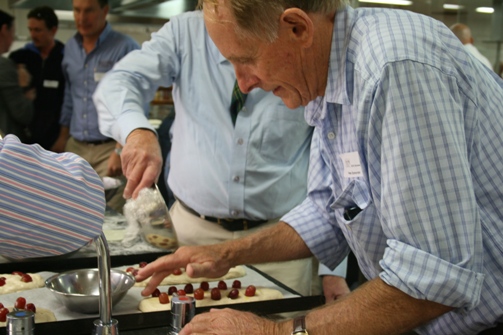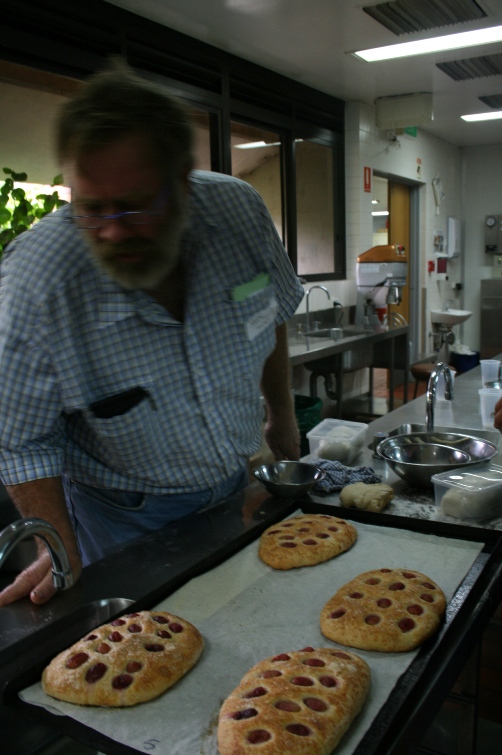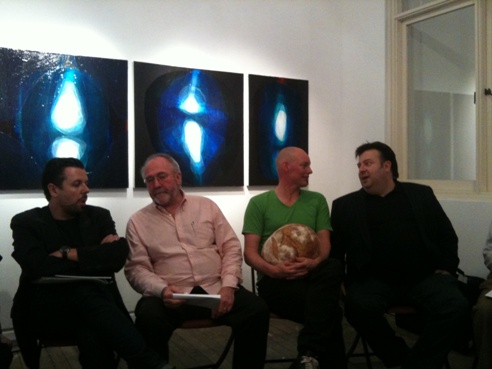Organic, sustainable, seasonal, genetic modification, biodynamic – the last two weeks have been an eye-opener to the importance of knowing your food. More specifically- knowing where it comes from, who it comes from, what goes into it, with or without your knowledge or permission!
In baking events and part of the Crave Sydney International Food Festival, we travelled to Toowoomba, Queensland last Thursday for Kialla Pure Foods’ annual Growers day to conduct a Farmer’s Baking Class. Michael, Matt our new Training Manager, and yours truly hopped onto a 6am flight lugging bags of Brasserie Bread (for a sandwich lunch) over to the Sunshine State to conduct one glorious day of pure, hands-on baking
We actually got to speak to the farmers who grow the organic wheat that goes into our breads, as you may know, our sourdoughs are all organic and you can see all ingredients in the nutritional labelling we have for every bread, pastry and cake product we make. Apart from openly discussing the future of going organic, we discovered the personal stories to why they chose this route of farming and the troubles they face in keeping their livelihood.
Good thing I remembered to keep the camera running! Some short clips on what we talked about
A short discussion on conventional chemical farming vs. organic farming
One couple’s personal reasons on why they decided to go organic
One other issue that we talked about that day was genetically-modified or GM wheat. Many expressed that the level of consumer awareness around GM foods will be raised through better labelling, which would require more political lobbying for more clarity and transparency in food & nutrition labelling.
From farmers, to chefs
The latest in bread news is the launch of Greenpeace’s report ‘Spliced Bread: The threat of genetically engineered wheat in Australia’ with a panel discussion of Sydney food identities expressing their thoughts on GM (genetically modified) foods at Gaffa Gallery on Wednesday 27 Oct. Michael was invited to be part of the panel alongside John Newton from the Herald, Robert Marchetti from Icebergs, Peter Gilmore from Quay and Maarten Stapper, ex-CSIRO scientist.
Robert Marchetti on the importance of eating seasonal produce to lower demand for GM food and unsustainable eating habits
Michael from Brasserie Bread, on why it’s important to keep the conversation on GM foods alive, especially in Australia
The Greenpeace GM Wheat talk brought home poignant reasons on why we need to be actively aware of what goes into making the food we eat. Biological fears with GM foods revolve around the lack of prolonged studies of the effect on humans. Biology is complex, according to Maarten Stapper, ex-CSIRO scientist. Genes are all interlinked and talk to each other. Severing links, creating new connections by transplanting and modifying genes – no simple gene transfer is possible without effects! From chefs, demand fuels supply – Eating produce that is not seasonal, and demanding it be available all year round is unsustainable to the environment and the human body. Be that through genetic modification of produce, or simply importing it from all over the world- either option bypasses nature and impacts natural processes.
Education is key to getting people, young and old, farmers and consumers, to be able to make informed decisions about what they put on their dinner tables.
“It’s about Smart farming – it’s about using all the techniques that are known through history about getting nutrition back in the dough.” – Michael Klausen
More information:
Greenpeace and GE Wheat
Fears over increase in modified wheat tests, The Brisbane Times
Spliced Bread: GE Wheat is coming to a store near you’, Greenpeace
Kialla Farmers Baking Class
‘Farmers learn from famous baker’, Toowoomba Times
